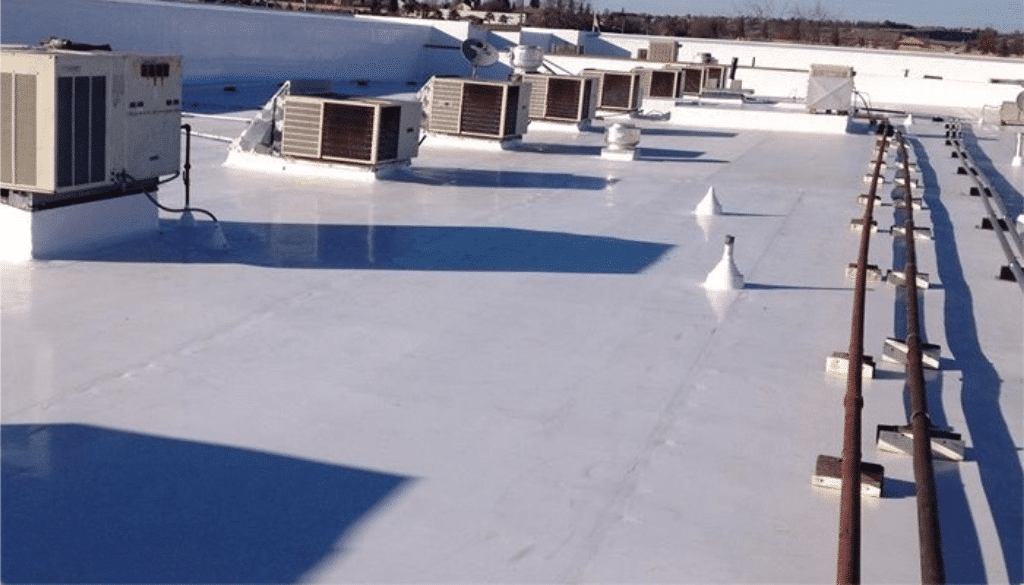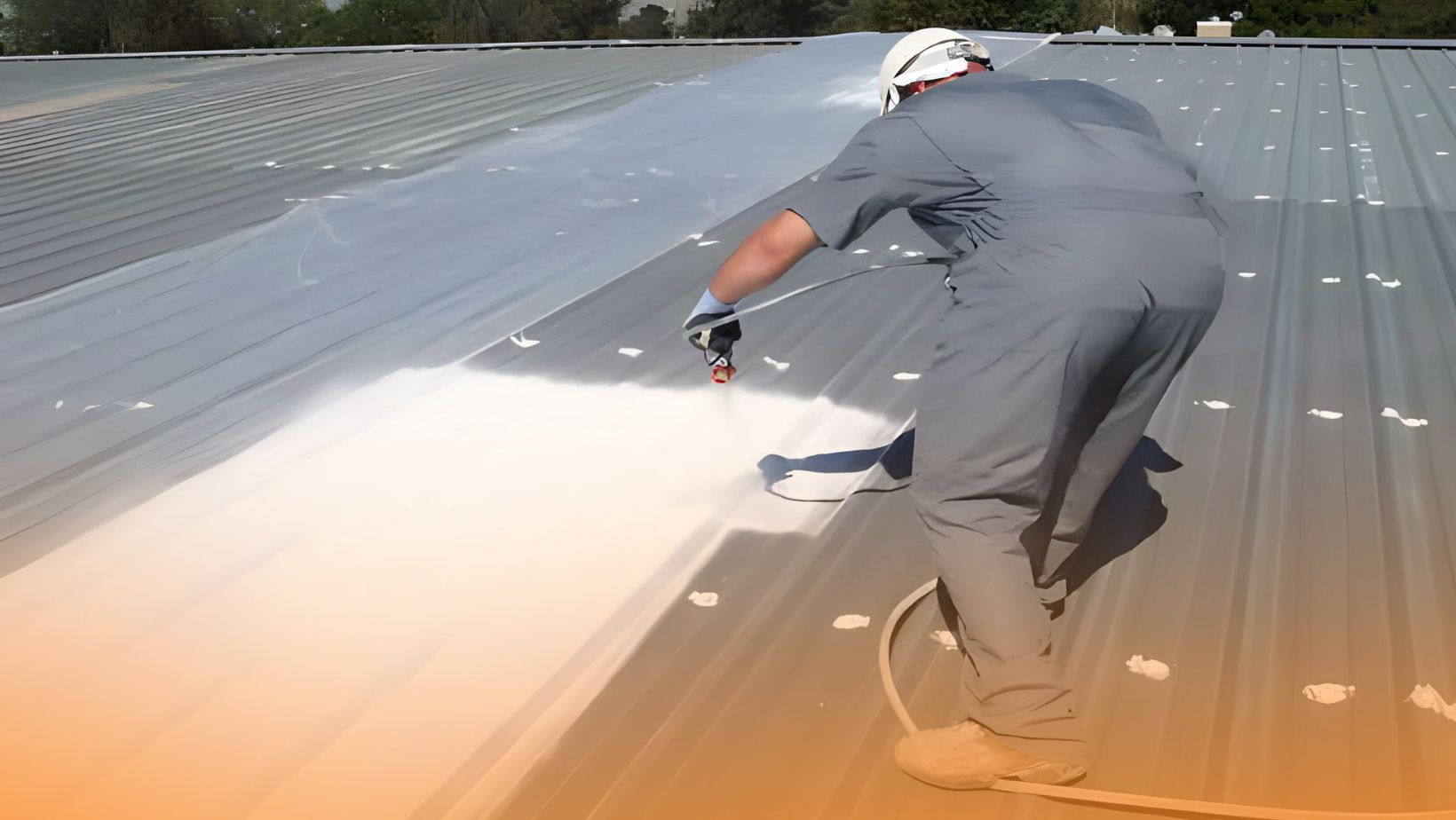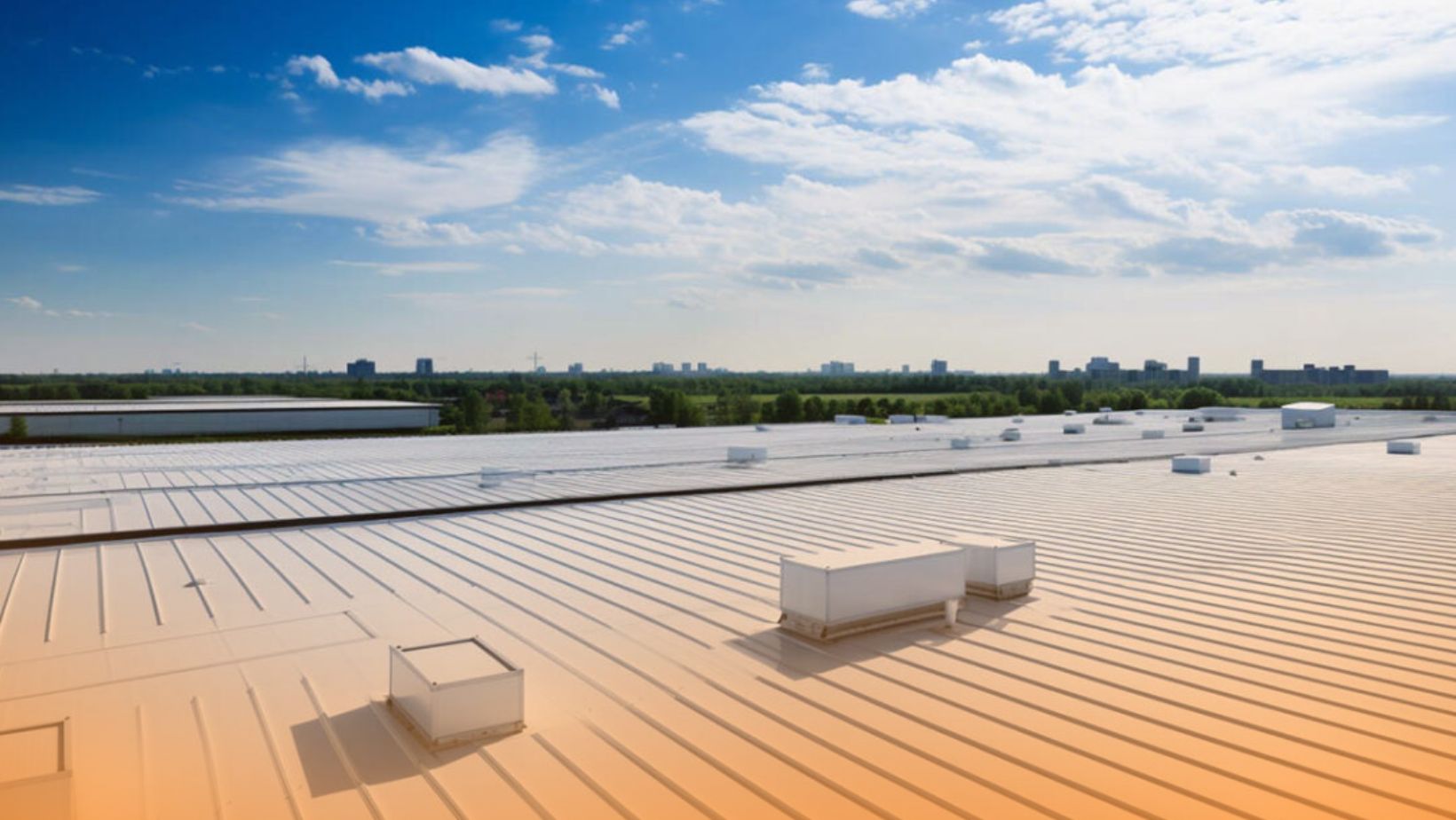When it comes to protecting your roof from the damaging effects of UV radiation, investing in UV resistant roof coatings is a wise decision. These coatings provide a barrier against the sun’s harmful rays, ensuring that your roof stays protected for years to come.
At SmartSeal, we offer a wide range of high-quality UV resistant roof coatings that are designed to provide long-lasting protection and substantial savings. Our top-rated coatings are known for their durability, affordability, and effectiveness, making them an ideal choice for homeowners and businesses alike.
By applying UV resistant roof coatings, you can extend the lifespan of your roof, saving you from the costly expense of premature replacements. These coatings act as a shield, preventing UV rays from penetrating the roof’s surface and causing damage. With our durable and reliable coatings, you can enjoy peace of mind knowing that your roof is protected against the harsh effects of the sun.
Not only do UV resistant roof coatings offer excellent protection, but they also help in reducing energy costs. These coatings reflect a high percentage of the sun’s rays, keeping your roof cooler and reducing the need for excessive air conditioning. By reducing your energy consumption, you can save money on utility bills while contributing to a greener environment.
Our UV resistant roof coatings are designed to provide the best possible protection and longevity. With our affordable and effective coatings, you can ensure that your roof remains durable and resistant to the damaging effects of UV radiation for an extended lifespan.
Key Takeaways
- UV resistant roof coatings provide long-lasting protection against UV radiation.
- Investing in high-quality coatings can extend the lifespan of your roof and save you from costly replacements.
- These coatings help in reducing energy costs by reflecting a high percentage of the sun’s rays.
- Our affordable and effective UV resistant roof coatings offer durability and effectiveness.
- By choosing UV resistant roof coatings, you can ensure a durable and protected roof for years to come.
Factors Affecting Roof Coating Lifespan
The lifespan of roof coatings can be influenced by various factors. These factors include the type of coating, quality of the product, application technique, roof substrate, and environmental conditions. Premium coatings such as silicone and urethane are known for their durability and longer service lives, while acrylic and asphalt emulsion coatings may require more frequent maintenance or recoating.
Regular inspections and maintenance are essential for identifying and addressing any issues that may impact the lifespan of the coating system. Timely recoating can help extend the life of the coating and ensure continued protection for the underlying roof substrate. By considering these factors and taking appropriate measures, you can maximize the lifespan of your roof coating and enhance the durability of your roof.
Types of UV Resistant Roof Coatings
When it comes to protecting your roof from the damaging effects of UV rays, there are several types of UV resistant roof coatings to consider. Each type has its own advantages and suitability for different roofing substrates and conditions. Here, we will explore some of the most commonly used types of UV resistant roof coatings:
Silicone Roof Coatings
Silicone roof coatings offer excellent resistance to UV rays and ponding water. They are highly durable and provide long-lasting protection for your roof. These coatings are known for their ability to withstand extreme temperatures and weather conditions. Additionally, silicone roof coatings have a high solids content, making them easy to apply and reducing labor costs.
Acrylic Roof Coatings
Acrylic roof coatings are an affordable and popular choice for UV protection. They offer good resistance to UV damage and are easy to apply. Acrylic coatings are available in various colors and can be used to enhance the appearance of your roof. However, it is important to note that acrylic coatings may require more frequent maintenance or recoating compared to premium coatings.
Urethane Roof Coatings
Urethane roof coatings are known for their durability and long service lives. They provide excellent resistance to UV rays and can withstand harsh weather conditions. Urethane coatings are highly adhesive and offer superior protection for your roof. However, it is worth mentioning that urethane coatings may be more expensive compared to other options.
Asphalt Emulsion Roof Coatings
Asphalt emulsion roof coatings are another option for UV resistance. They provide adequate protection against UV rays and can be cost-effective. However, it is important to note that asphalt emulsion coatings may require more maintenance and periodic reapplication to ensure optimal performance.
Choosing the right type of UV resistant roof coating for your needs depends on various factors such as your budget, roof substrate, and desired level of protection. It is recommended to consult with roofing professionals to determine the best option for your specific requirements.
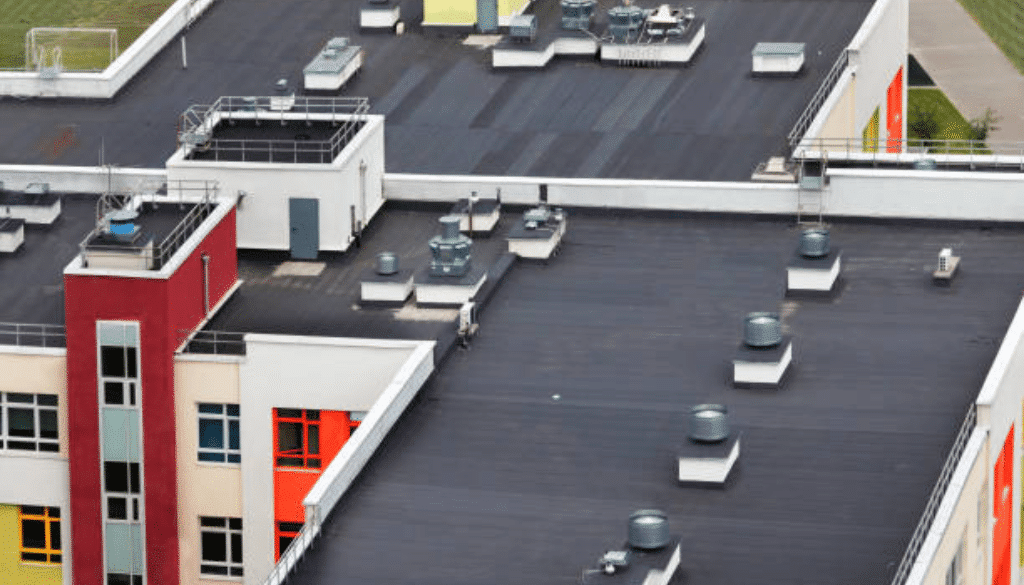
Benefits of Silicone Roof Coatings
When it comes to protecting your roof, silicone roof coatings offer numerous advantages. These coatings are specifically designed to provide exceptional performance and long-lasting durability. Let’s explore some of the key benefits of silicone roof coatings:
- Resistance to Ponding Water: Silicone roof coatings have excellent resistance to ponding water, making them ideal for roofs that are prone to water accumulation. This feature helps prevent water damage and extends the lifespan of your roof.
- UV Ray Reflection: Silicone coatings can reflect a high percentage of the sun’s harmful UV rays. This characteristic not only helps in reducing cooling costs but also protects the roof from UV damage, maintaining its integrity over time.
- Flexibility and Weather Resistance: Silicone roof coatings are highly flexible and can adapt to the thermal expansion and contraction of the roof. Additionally, they are weather-resistant, capable of withstanding extreme temperatures and harsh environmental conditions, such as wind-driven sand.
- Efficient Application and Reduced Labor Costs: Silicone coatings have a high solids content, allowing for more efficient application. This means reduced labor costs, making them a cost-effective choice for roof protection.
- Environmentally Safe: Silicone roof coatings have low VOC (volatile organic compound) levels, making them environmentally safe. This ensures that the coating application doesn’t harm occupants or contribute to air pollution.
Overall, silicone roof coatings offer a wide range of benefits, including protection against ponding water, UV rays, and extreme weather conditions. Their efficient application and environmental safety make them an excellent choice for safeguarding your roof and maximizing its lifespan.
Lifespan of Silicone Roof Coatings
When it comes to the lifespan and durability of silicone roof coatings, proper application and maintenance are key. A well-applied and well-maintained silicone coating can last anywhere from 10 to 20 years, or even longer. The longevity of silicone roof coatings is influenced by various factors, including the quality of the coating, the application technique, climate conditions, and regular maintenance.
High-quality silicone coatings formulated with superior materials and additives are designed to withstand the harsh effects of UV radiation, extreme temperatures, moisture, and chemicals without degrading quickly. These coatings provide excellent protection and maintain their integrity over time.
Climate conditions can also impact the lifespan of silicone roof coatings. Significant temperature fluctuations, freeze-thaw cycles, and other environmental factors can accelerate the weathering process. However, high-quality silicone coatings are designed to withstand these challenges and maintain their durability even in harsh conditions.
To maximize the lifespan of silicone roof coatings, regular inspections and maintenance are essential. Routine inspections allow for the early detection of any issues such as cracks, blistering, or water damage. Timely repairs and maintenance can help address these issues before they worsen, prolonging the lifespan of the coating and ensuring the ongoing protection of the roof.
Advantages and Disadvantages of Acrylic Roof Coatings
Acrylic roof coatings offer numerous advantages that make them a popular choice for many building owners. One of the primary benefits of acrylic coatings is their cost-effectiveness. They are generally more affordable compared to premium coatings like silicone or urethane. This makes acrylic roof coatings an excellent option for those on a tighter budget.
Additionally, acrylic roof coatings are durable and resistant to UV rays. They can withstand prolonged exposure to sunlight without deteriorating or losing their protective properties. The UV resistance of acrylic coatings helps prevent damage to the underlying roof materials, extending the lifespan of the roof.
However, it’s essential to consider the disadvantages of acrylic roof coatings as well. One potential drawback is their shorter lifespan compared to premium coatings. Acrylic coatings may require more frequent maintenance or recoating to maintain their effectiveness. This can result in additional costs and labor over time.
In summary, acrylic roof coatings offer several advantages, including cost-effectiveness, ease of application, durability, and UV resistance. However, they may require more frequent maintenance and can attract dirt and dust over time. By considering both the advantages and disadvantages of acrylic roof coatings, owners can make an informed decision based on their specific roofing needs.
| Advantages of Acrylic Roof Coatings | Disadvantages of Acrylic Roof Coatings |
|---|---|
| Cost-effective | Shorter lifespan compared to premium coatings |
| Easy application | Potential maintenance and recoating requirement |
| Durable | Can attract dirt and dust over time |
| UV resistant |
Types and Benefits of Polyurethane Roof Coatings
Polyurethane roof coatings are an excellent choice for protecting your roof and extending its lifespan. They come in two main forms: aliphatic and aromatic. Let’s take a closer look at the types and benefits of polyurethane roof coatings.
1. Aliphatic Coatings
Aliphatic polyurethane roof coatings are known for their exceptional UV resistance. They can withstand prolonged exposure to the sun’s harmful rays without degrading or fading. This UV resistance helps maintain the appearance of your roof and prevents premature aging. Additionally, aliphatic coatings resist dirt and debris accumulation, keeping your roof cleaner for longer periods.
2. Aromatic Coatings
Aromatic polyurethane roof coatings also offer valuable advantages. While they have limited UV resistance compared to aliphatic coatings, they are still highly durable and protective. This type of coating is often less expensive than aliphatic options, making it a cost-effective choice for many building owners. Some people opt for a combination of aliphatic and aromatic coatings to balance cost and UV protection.
Polyurethane roof coatings, regardless of type, offer several benefits:
- High Durability: Polyurethane coatings are known for their durability and ability to withstand harsh weather conditions. They form a tough, flexible membrane that can resist cracking, peeling, and damage from impact.
- Excellent Adhesion: Polyurethane roof coatings have excellent adhesion properties, allowing them to adhere tightly to various roofing substrates. This ensures a strong bond and optimal protection for your roof.
- Impact Resistance: With their strong and flexible nature, polyurethane coatings can withstand impact from hail, debris, and foot traffic. This impact resistance helps prevent damage and prolongs the lifespan of your roof.
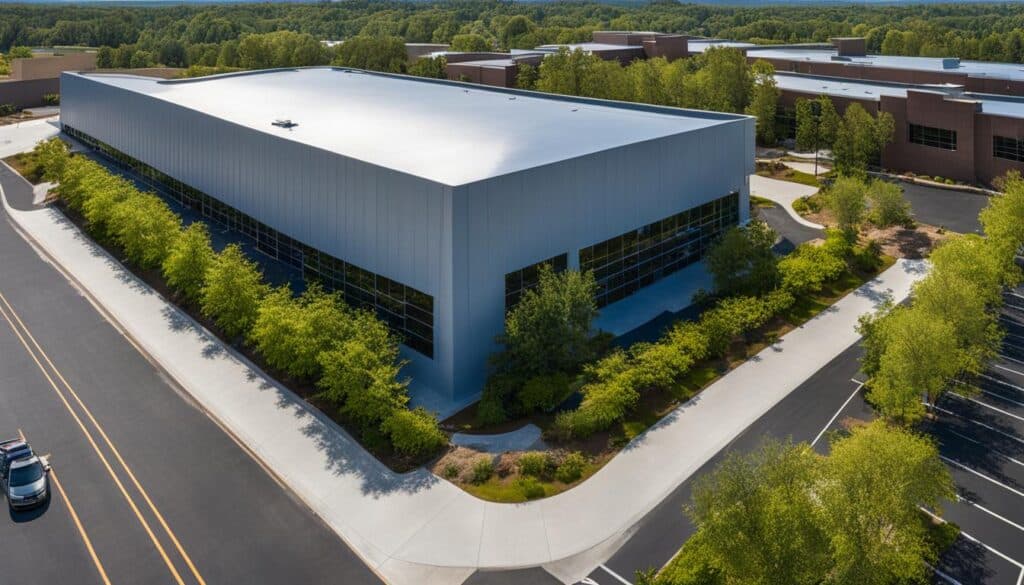
Advantages and Applications of Bitumen Roof Coatings
When it comes to roof coatings, bitumen provides several advantages that make it a popular choice for many roofing applications. Its unique properties and affordable price point make it a practical option for building owners and contractors looking for reliable protection.
Advantages of Bitumen Roof Coatings
- Durability: Bitumen roof coatings are known for their durability, making them resistant to damage caused by freezing and thaw cycles. This longevity ensures that your roof remains protected for an extended period, saving you both time and money in the long run.
- Inexpensive: Bitumen roof coatings are an affordable option compared to other roofing materials. This cost-effectiveness allows you to achieve reliable protection for your roof without breaking the bank.
- High Adhesiveness: Bitumen coatings have excellent adhesion properties, ensuring that they bond firmly to the surface they are applied to. This adhesiveness provides a secure and long-lasting protective layer.
Applications of Bitumen Roof Coatings
Bitumen roof coatings are commonly used in various roofing applications due to their advantages and versatility. Some of the popular applications include:
| Application | Description |
|---|---|
| Flat Roofs | Bitumen coatings are ideal for flat roofs that do not experience frequent foot traffic. Their durability and resistance to freezing and thaw cycles make them suitable for this application. |
| Residential Roofs | Bitumen coatings can be applied to residential roofs to provide an additional protective layer. They offer reliable protection against weather elements, extending the lifespan of the roof. |
| Commercial Roofs | In commercial settings, bitumen coatings are often used to protect the roofs of buildings such as warehouses, factories, and offices. With their durability and cost-effectiveness, they are a practical choice for large-scale projects. |
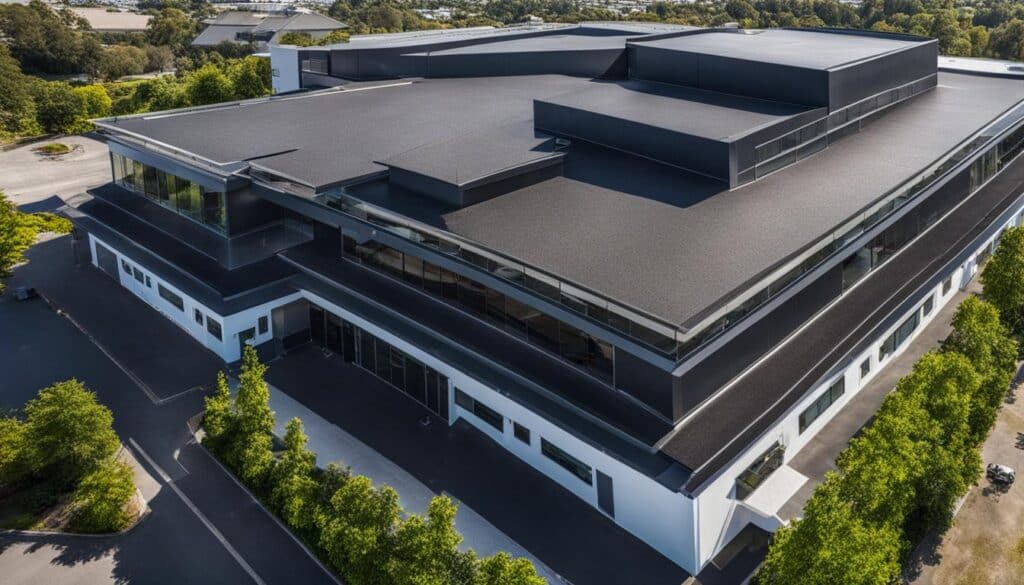
Overall, bitumen roof coatings offer numerous benefits and find wide applications in the roofing industry. Their durability, affordability, and high adhesiveness make them a reliable choice for protecting various types of roofs. Whether you have a residential or commercial roofing project, considering bitumen coatings can ensure long-lasting and cost-effective protection.
Advantages of Aluminum Roof Coatings
- Durability: Aluminum roof coatings provide excellent protection against the elements, including UV rays, moisture, and temperature extremes. They can withstand harsh weather conditions and help extend the lifespan of your roof.
- Energy Efficiency: Aluminum coatings have reflective properties that help reduce heat absorption, keeping your business cooler and reducing the need for excessive air conditioning. This can result in energy savings and lower utility bills.
- UV Protection: Aluminum roof coatings are highly resistant to UV rays, preventing them from damaging the underlying roofing materials. This resistance helps maintain the integrity and appearance of your roof over time.
Despite these advantages, it’s important to consider a few considerations before opting for an aluminum roof coating.
Choosing the Right Roof Coating for Your Needs
When it comes to selecting the best roof coating for your needs, several factors should be considered. Taking the time to evaluate these factors will ensure that you choose the right coating that provides the desired benefits and long-term protection for your roof.
The following are some key factors you should consider:
- Objectives: Determine your objectives for coating your roof. Are you looking to extend the lifespan of the roof, reduce energy costs, or enhance its appearance? Understanding your objectives will help you prioritize the qualities and features you need in a roof coating.
- Type of roof: Consider the type of roof you have. Different coatings are designed to work with specific roofing substrates such as metal, asphalt, or single-ply membranes. It’s important to select a coating that is compatible with your roof type to ensure optimal performance and longevity.
- Budget: Evaluate your budget for the roof coating project. Different coatings have varying costs, so it’s essential to find a balance between your budget and the quality and performance you require. Consulting with experienced roofing contractors can help you find cost-effective options without compromising on durability and effectiveness.
- Local climate: Understand your local climate conditions. Factors such as temperature fluctuations, humidity levels, and exposure to UV radiation can impact the performance of roof coatings. Consulting with professionals familiar with the local climate can help you select a coating that can withstand these conditions and provide optimal protection.
Once you have considered these factors, it’s time to consult with experienced roofing contractors. They can evaluate your roof’s condition, assess the climate conditions, and work within your budget to recommend the most suitable roof coating option for your specific needs. Their expertise and knowledge will ensure that you choose a roof coating that offers maximum durability, longevity, and performance.
Conclusion
UV resistant roof coatings offer valuable protection for your business, extending its lifespan and providing energy savings. The durability and longevity of roof coatings depend on various factors such as the type of coating, quality, application process, substrate, and environmental conditions. Premium coatings like silicone and urethane are known for their durability and longer service lives, while acrylic and asphalt emulsion coatings may require more maintenance.
Regular maintenance, inspections, and timely recoating are essential for maximizing the lifespan of roof coatings. Adhering to proper application techniques and following manufacturer guidelines ensure the longevity and effectiveness of your roof coating system. Environmental factors such as temperature, UV radiation, moisture, and air pollution can also impact the performance of the coating over time.
Does your Clearwater building need a new roof? Instead of re-roofing, contact Clearwater’s top commercial roof coating contractor, SmartSeal.
FAQs
What factors can affect the lifespan of roof coatings?
The lifespan of roof coatings can vary depending on several factors, including the type of coating, quality, application process, substrate, and environmental conditions. Proper surface preparation, application techniques, and adherence to manufacturer guidelines are crucial for maximizing lifespan. Environmental conditions such as temperature, UV radiation, moisture, and air pollution can also affect performance.
What types of UV resistant roof coatings are available?
There are different types of UV resistant roof coatings available, including silicone, acrylic, urethane, and asphalt emulsion coatings. Each type has its advantages and suitability for different roofing substrates and conditions.
What are the benefits of silicone roof coatings?
Silicone roof coatings offer excellent resistance to UV rays and ponding water. They are highly flexible, weather-resistant, and capable of withstanding extreme temperatures and wind-driven sand. Silicone coatings also have high solids content, allowing for more efficient application and reduced labor costs. Additionally, they are environmentally safe with low VOC levels.
How long do silicone roof coatings last?
When properly applied and maintained, silicone roof coatings can last anywhere from 10 to 20 years or even longer. The quality of the silicone coating, application technique, climate conditions, and regular maintenance all affect its lifespan.
What are the advantages and disadvantages of acrylic roof coatings?
Acrylic roof coatings are cost-effective, easy to apply, and resistant to UV damage. However, they may require more frequent maintenance or recoating compared to premium coatings like silicone or urethane. Acrylic coatings can attract dirt and dust over time, reducing their reflective properties.
What are the types and benefits of polyurethane roof coatings?
Polyurethane roof coatings come in two main forms: aliphatic and aromatic. Aliphatic coatings are UV resistant and resist dirt accumulation, while aromatic coatings have limited UV resistance. Polyurethane coatings are durable, highly adhesive, and impact-resistant.
What are the advantages and applications of bitumen roof coatings?
Bitumen roof coatings are inexpensive, durable, and resistant to damage from freezing and thaw cycles. They have high adhesiveness and are suitable for roofs that don’t experience frequent foot traffic. Adequate drainage is crucial for preventing water ponding on the roof.
What are the benefits and considerations of aluminum roof coatings?
Aluminum roof coatings offer durability, UV protection, and reflectivity. They can help reduce energy costs and prolong the lifespan of the roof. However, aluminum coatings have a strong odor due to high levels of VOCs.
How do I choose the right roof coating for my needs?
When choosing a roof coating, consider factors such as your objectives, type of roof, budget, and local climate. Each type of coating has its advantages and suitability for different roofing substrates and conditions. Consulting with experienced roofing contractors can help you select the best roof coating for your specific needs.
What do I need to know about UV resistant roof coatings?
UV resistant roof coatings offer valuable protection for your property, extending its lifespan and providing energy savings. The lifespan of roof coatings can vary depending on various factors. Regular maintenance, inspections, and timely recoating are essential for maximizing the lifespan of roof coatings.

